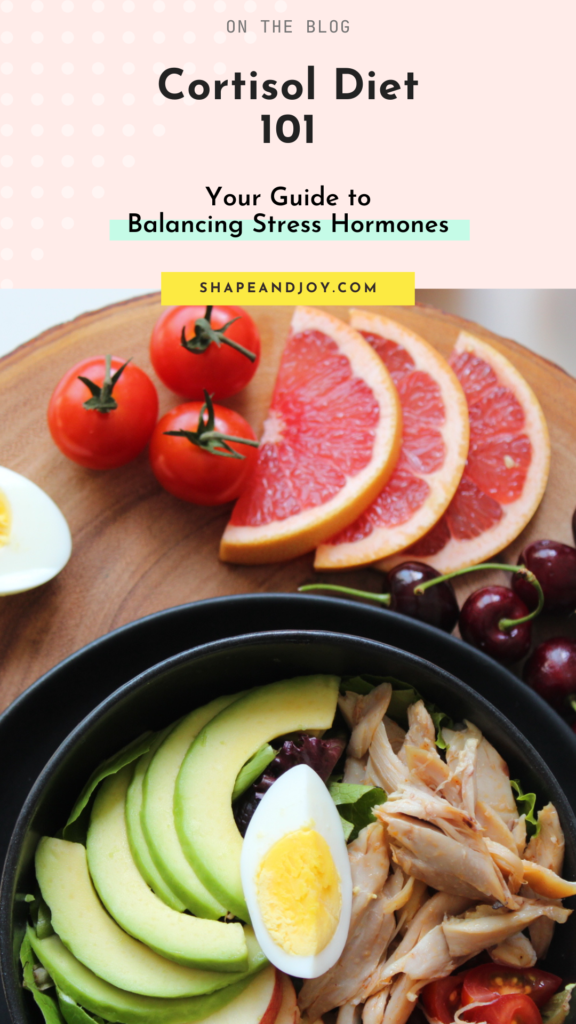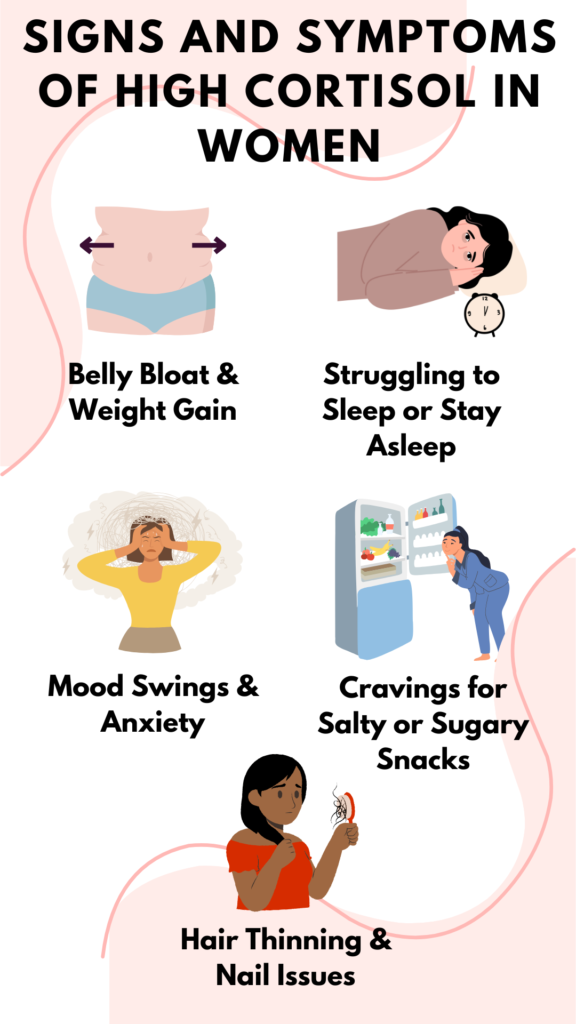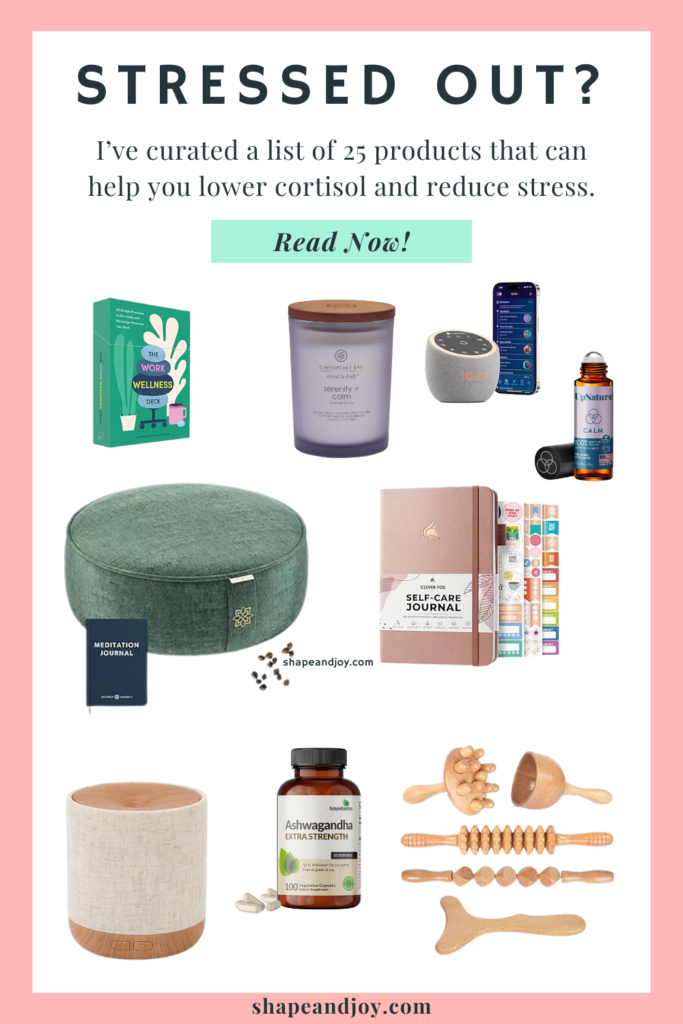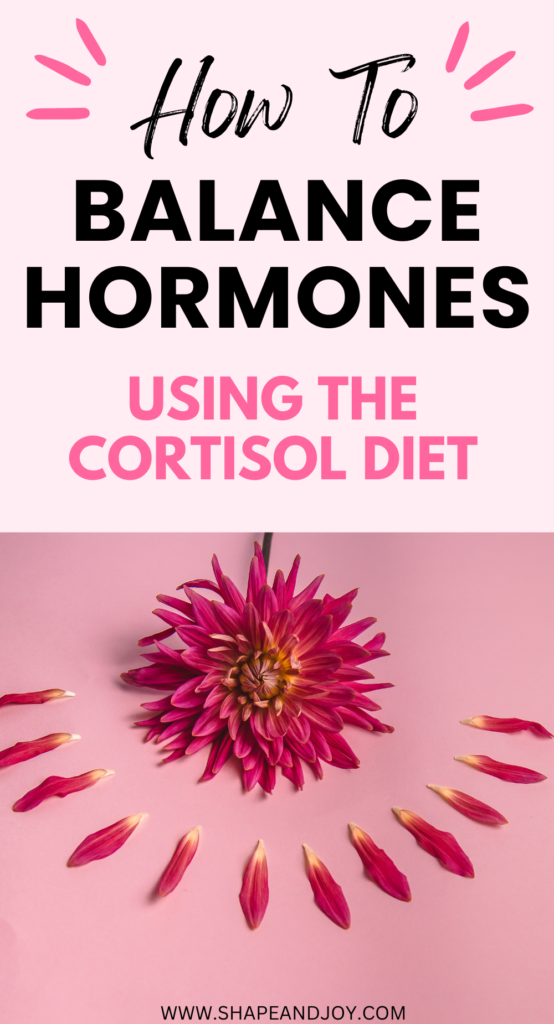This post may contain affiliate links, which means that I may earn a commission if you click on the link or make a purchase using the link. When you make a purchase, the price you pay will be the same whether you use the affiliate link or go directly to the vendor’s website using a non-affiliate link.
Let’s talk about something most of us women don’t realise is controlling our lives: hormones. Those sneaky little things are behind your acne flare-ups, random mood swings, and that stubborn belly fat. Yep, it’s not just you—it’s those pesky stress hormones running riot, especially cortisol.
But here’s the good news: you can balance your hormones naturally, and it starts with what’s on your plate.
Enter a cortisol diet—your new best friend for bringing those stress levels down, helping with hormonal imbalances, and yes, even making that hormonal weight gain pack its bags.
Let’s get into it: how to balance hormones, tackle stress, and feel more like yourself again. Spoiler alert: it doesn’t involve kale smoothies for every meal.

What is Cortisol, and Why Should You Care?
First off, cortisol is your body’s stress hormone—your fight-or-flight sidekick. It’s not inherently a bad things.
But here’s the catch: when cortisol’s doing overtime (cheers, stress!), it starts wreaking havoc.
We’re talking acne, sugar cravings, sleepless nights, and a waistline that seems to expand faster than you can say “pass the biscuits.”
Too much cortisol doesn’t just stress you out—it throws your entire hormonal ecosystem into chaos. And when hormones like estrogen and progesterone join the drama, you’re looking at symptoms like low energy, bloating, and more weight gain.
Fun times, right?
But don’t worry, we’ve got the ultimate plan to help you reset your hormones and give cortisol the boot.
Think your cortisol levels might be out of control? High cortisol can lead to all sorts of sneaky symptoms like fatigue and weight gain. Check out my post on the signs of high cortisol in women to learn more about what to look out for.
Cortisol Diet Basics: Where to Start
A hormone diet (or hormone-balancing diet, if we’re being fancy) is all about feeding your body what it needs to calm down and sort itself out. Think of it like giving your body a nice cup of tea and a pep talk.
The right foods = happy, healthy hormones.

What to Add to Your Plate
Here are the all-stars of the cortisol diet:
Salmon: Packed with omega-3s, which help lower inflammation and support natural hormone balance. Plus, it’s delicious.
Spinach: Full of magnesium to calm those stress levels. It’s like a spa day for your insides.
Berries: Antioxidant powerhouses that fight inflammation and support a healthy microbiome.
Nuts and Seeds: Brilliant for healthy fats and fibre—both essential for hormone balance and tackling weight gain.
Dark Chocolate: Yes, you read that right. A bit of dark choc can help regulate cortisol and give you a mood boost.
What to Avoid Like the Plague
Some foods aren’t doing your hormones any favours. Here’s what to cut back on:
Processed Junk: Cakes, crisps, and all those sugary snacks spike cortisol faster than a toddler on a sugar rush.
Caffeine Overload: Your fourth cup of coffee? Yeah, that’s not helping. Try swapping for herbal tea.
Alcohol: I know, I know, but too much booze can throw off your estrogen levels and make your stress worse.
Cutting out processed foods and sugary snacks is step one in tackling a stress belly caused by cortisol. For more tips on reducing belly fat linked to stress, read my post on how to get rid of stress belly naturally.

Quick Wins for Hormonal Balance
If you’re busy (aren’t we all?), here are a few easy swaps to start balancing your hormones naturally:
Breakfast: Swap sugary cereal for porridge topped with berries and seeds.
Lunch: Add leafy greens to whatever you’re eating (sandwiches count!).
Snacks: Keep nuts, hummus, or a boiled egg handy for healthy proteins.
These small tweaks will start calming that cortisol chaos and set you up for healthy hormones long-term.
📌 Pin this for later! ⬇

The Bigger Picture: Beyond Food
Now, I’m not going to lie—food’s a big part of this, but it’s not the whole shebang. Hormonal health is also about how you live your life. Here’s how to go the extra mile:
Sleep Like It’s Your Job: Poor sleep sends your cortisol levels sky-high. Aim for 7-9 hours a night, and keep your bedtime routine simple.
Move Your Body, Gently: Forget punishing workouts. Yoga, walking, or light strength training are fab for balancing hormones naturally.
De-Stress Daily: A bit of mindfulness, deep breathing, or journaling goes a long way. Stress management = happy hormones.

How the Cortisol Diet Can Change Your Life
Stick to this plan, and you’ll notice the difference: better energy, clearer skin, less bloating, and those pesky cravings won’t have you raiding the biscuit tin at midnight.
It’s all about small, sustainable changes that lead to big results.
Remember, balancing hormones isn’t a quick fix—it’s a journey.
You’re rewiring how your body responds to stress, one meal and one habit at a time. And trust me, you’ve got this.
How to Reduce High Cortisol Levels for Good!
If stress has been running the show—messing with your energy, cravings, and waistline—it’s time to take back control. This series is all about lowering cortisol naturally, stopping stress-driven weight gain, and helping you feel like yourself again.
Explore the full series:
- Cortisol Diet 101: The Best Foods to Reduce Stress Hormones (You’re here!) – The ultimate guide to eating for lower cortisol and better health.
- Signs of High Cortisol in Women: Symptoms, Causes & How to Fix It – Spot the warning signs and learn how to restore balance.
- 25 Amazon Products to Lower Cortisol & Reduce Stress Naturally – Easy lifestyle upgrades to help keep stress hormones in check.
- Cortisol Regulation Routine: Morning & Night Habits to Lower Stress – Daily habits to naturally reduce high cortisol levels.
- The Best Supplements to Lower Cortisol & Restore Balance – Science-backed vitamins and herbs to help fix cortisol levels.
- Cortisol & Emotional Eating: How to Stop Stress Cravings & Prevent Weight Gain – Focuses on how cortisol affects appetite and cravings, making it harder to stop snacking and leading to weight gain. Learn how to manage stress eating and regain control of your hunger.
- Get Rid of Stress Belly: Science-Backed Ways to Reduce Cortisol & Burn Belly Fat – Explores why cortisol leads to belly fat storage, even if you’re eating well. Learn how to target stress belly with cortisol-balancing foods, exercise, and lifestyle shifts.
Final Pep Talk
Your hormones aren’t the boss of you—you’re the boss of them. With a cortisol diet, you can take back control, feel better in your own skin, and live a life where your hormones work for you, not against you.
So, ready to get started?
Go on, give this a go, and let me know how you feel. You’ve got this! 💪
📌 Pin this for later! ⬇

Studies
High cortisol levels caused by chronic stress can disrupt sleep, increase cravings, and lead to hormonal imbalances. A hormone-balancing diet can help regulate cortisol and improve overall health (Stachowicz & Lebiedzińska, 2016).
Foods rich in magnesium (like spinach) and omega-3 fatty acids (such as salmon) can help reduce cortisol and inflammation, supporting hormone balance (Grzebisz, 2016).
Adaptogens like ashwagandha can effectively lower stress hormones, helping to restore balance to the hormonal system (Anju & Ghosh, 2021).
Essential oils like lavender, when used in aromatherapy or topically, have been shown to reduce cortisol and aid relaxation (Suyono et al., 2020).

